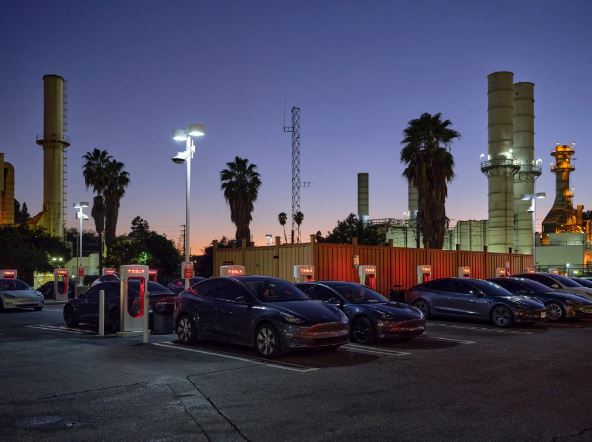In the wake of President Biden’s signing of an expansive climate bill into law over a year ago, the United States has witnessed a surge in clean energy projects, totaling more than $200 billion in new investments. However, concerns loom over the future of these projects as the upcoming election and the prospect of a Republican takeover raise uncertainties about the fate of key provisions in the legislation.
Former President Donald J. Trump, a leading contender for the Republican nomination, has been vocal in his criticism of central elements of the Inflation Reduction Act, particularly tax credits for electric vehicle purchases. His stance has prompted corporate executives to grapple with the potential implications of legislative changes on their clean energy investment strategies.
Efforts by Republican lawmakers to repeal significant portions of the law have been unsuccessful thus far, as it was passed entirely with Democratic votes in 2022. While a broad repeal appears unlikely given the economic benefits of the legislation, a Republican administration could seek to influence the programs through regulatory changes, which could impact companies and industries and hinder the Biden administration’s climate objectives.
The Inflation Reduction Act includes various incentives such as tax credits and subsidies to encourage companies to deploy more clean energy projects. It also offers tax breaks for consumers purchasing electric vehicles, heat pumps, and other energy-efficient appliances.
Thomas Pyle, president of the American Energy Alliance representing fossil fuel interests, suggested that many provisions of the law could be targets for Republicans. For instance, a new administration could impose stricter requirements for electric vehicles to qualify for tax credits, potentially limiting the number of eligible vehicles and impeding progress toward the Biden administration’s goal of increasing electric vehicle adoption.
Kevin Book, managing director at ClearView Energy Partners, noted that a Republican administration might restrict the locations eligible for tax credits for installing electric vehicle charging stations, thereby affecting the accessibility and availability of charging infrastructure.
Mr. Trump has criticized key aspects of the law, including tax credits for electric vehicles, which he described as benefits for the wealthy to purchase luxury cars. He has also expressed skepticism about wind power, advocating for natural gas as a cheaper alternative and decrying wind installations for their impact on landscapes.
The possibility of a rollback of the law has become a topic of discussion in corporate earnings calls. John Ketchum, CEO of NextEra Energy, emphasized the significance of the law’s benefits to Republican states and rural communities, suggesting that a repeal was unlikely given its bipartisan appeal.
While industry executives operating in the clean energy sector remain optimistic about the resilience of the legislation, they acknowledge the potential for modifications under a Republican administration. David Carroll, chief renewables officer at Engie North America, highlighted the job creation in Republican-led states resulting from the law’s implementation, which could influence lawmakers’ decisions.
Despite White House officials’ warnings about the adverse effects of repealing the law, there is an expectation among energy researchers and business groups that Republicans may attempt to roll back certain provisions, particularly to offset the cost of extending the Trump tax cuts set to expire in 2025. The estimated cost of the law’s energy incentives has increased significantly since its passage, underscoring the importance of businesses preparing for potential policy changes.
In the face of uncertainty surrounding the future of clean energy projects, business leaders are urged to remain vigilant and adaptable to evolving policy landscapes, recognizing the potential for policy shifts while continuing to pursue sustainable investments.

